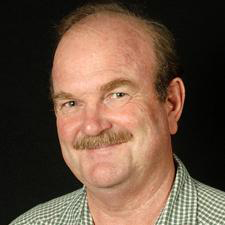“In this period of economic austerity, governments are forced to cut their spending and budgets in order to remain financially viable or sustainable. Universities are therefore more and more challenged to find alternative means to meet the growing demands of financial resources to fulfil the academic project.”
Prof Refilwe Phaswana Mafuya, deputy-vice chancellor for research and innovation at the North-West University (NWU), says universities have to diversify their funding sources for research within a highly competitive environment.
“To successfully secure such diverse competitive funding nationally and internationally, universities must have an attractive academic profile and form collaborations with other institutions that complement them,” she says.
“They should also be able to show demonstrable expertise and that their work is novel, responsive and has potential impacts to societal needs. In addition, they should showcase buy-in through collaboration and partnership with local and international institutions that share a common vision.”
The NWU is known for engaged research and teaching that impacts society and has secured numerous international and national grants from highly reputable funding agencies. “This fulfils our vision to grow income stream 3 and 5,” says Prof Phaswana-Mafuya.
So far two academic projects have received substantial financial boosts of this kind in 2019. These projects are run by the Centre for Excellence in Nutrition (CEN) in the Faculty of Health Sciences and the NWU Operational Support and Planning Project in the Unit for Environmental Sciences and Management (UESM) in the Faculty of Natural and Agricultural Sciences.

Prof Refilwe Phaswana-Mafuya.
Nutrition programme brings stakeholders together
Prof Johann Jerling of the CEN heads a team that has secured its single largest contract ever, USD 1,7 million.
The grant is for CEN’s African Nutrition Leadership Programme (ANLP) and is part of a USD 311 million grant awarded to the John Snow Incorporated Research and Training Institute (JSI) and others, with which CEN has partnered. The funding is from the United States Agency for International Development (USAID).
The ANLP develops institutional and individual leadership capacity of mid-career nutrition professionals and related stakeholders in various levels of nutrition, mainly across the African continent.
Since 2002, the ANLP has trained more than 450 individuals from 39 African countries. Most of the participants (66%) are women.
On average, 14 African countries are represented at each of the annual 10-day ANLP seminars.
The overall goal of the programme is to positively impact nutrition action in Africa. This is accomplished by creating awareness of each participant’s own leadership ability and creating an environment in which individuals can experience their strengths and growth areas, work in culturally diverse teams and receive feedback on their progress.
“This funding is the result of many years of building an extensive African, European and American network. It is due to the hard work and incredible dedication of a team of people who have organised and run the ANLP since 2002,” says Prof Jerling.
There are similar programmes in Europe, Asia and Oceania, but the ANLP programme is unique. “We do it differently by presenting tailor-made courses on demand to help people from all spheres in the nutrition field.”
Prof Jerling says the tailor-made programmes started when they were approached by the Kenyan National Food Fortification Alliance in 2010 to help with the implementation of mandatory food fortification in Kenya.
Next, CEN was approached by UNICEF, the Sight and Life Foundation, DANIDA and the Ministry of Health of Kenya to develop tailor-made solutions in countries such as Rwanda, Uganda, Zambia, and Kenya. The ANLP has gone from strength to strength and the funding is proof that the programmes are highly regarded in the field of nutrition leadership development.

Prof Johann Jerling.
Project assesses and evaluates bush control
Renowned land degradation and desertification expert Prof Klaus Kellner and his team were awarded a R9 million grant by the Natural Resource Management (NRM) Programmes of the Department of Environmental Affairs (DEA).
Ending in 2021, this three-year project focuses on Prof Kellner’s research on restoration after bush encroachment control by the DEA. The purpose of the project is to quantify land degradation and the effectiveness of the mitigation processes and socio-economic benefits of the rural poor in the long term.
The project, which includes fieldwork in North West and Limpopo, not only involves bush encroachment management but also capacity building, skills training and job creation for young women. These women are part of the NRM-DEA’s Groen Sebenza internship programme and participate in a number of skills development and capacity-building programmes at the NWU, where they gain skills in computer literacy, data management and data analysis.
The Groen Sebenza programme connects young South Africans from previously disadvantaged backgrounds with experienced natural resource management professionals, who mentor and prepare them for further studies or careers in the management of natural resources.
The Groen Sebenza interns are employed by the NWU and are required to monitor the implementation activities, keep adequate records for all the experimental plots and help with data analysis and processing.
Prof Kellner and his team, including a number of postgraduate students, mostly do research in arid and semi-arid systems of Southern Africa where bush control has been applied. All team members are involved and help in the training of the Groen Sebenza interns.
“We are very excited about this project and very proud to have been awarded the tender. I believe it will have a great impact on the environment and help to facilitate the training of experts of the future.”

Prof Klaus Kellner.
